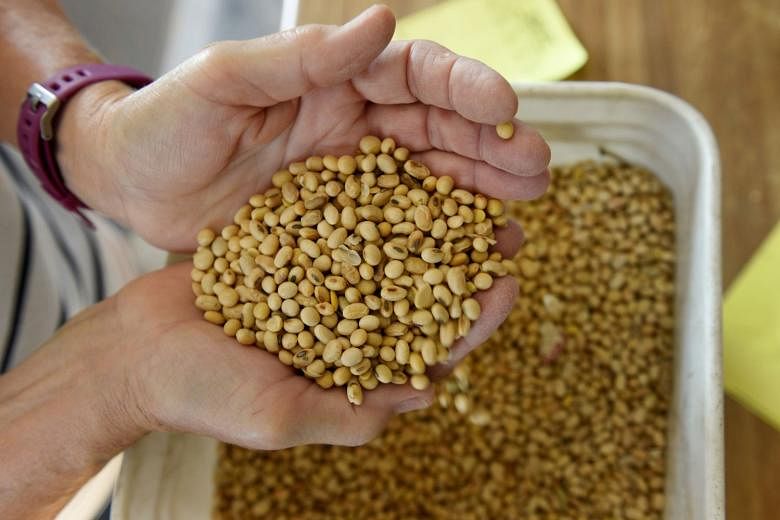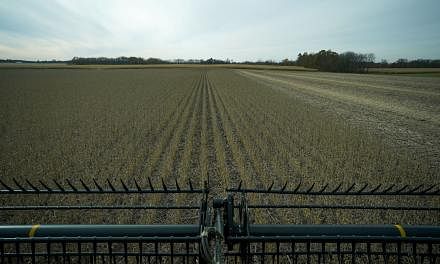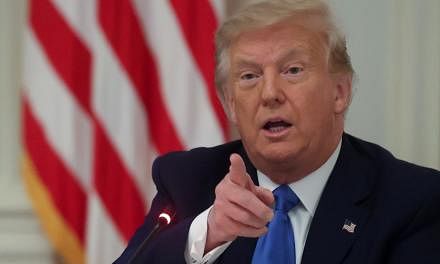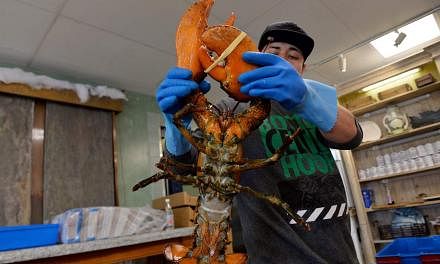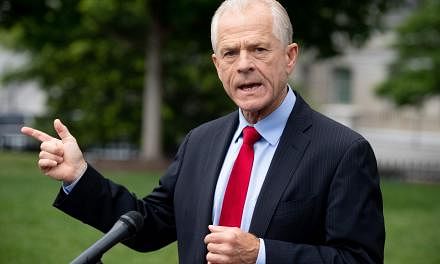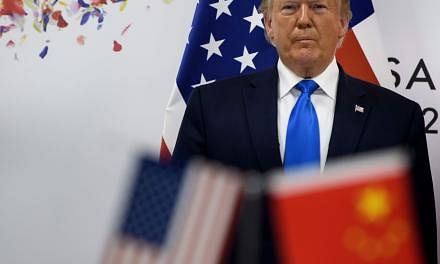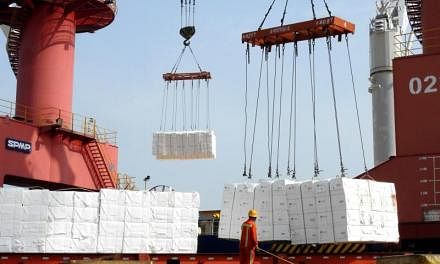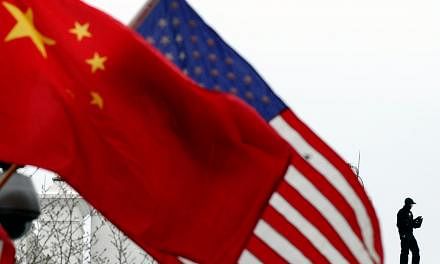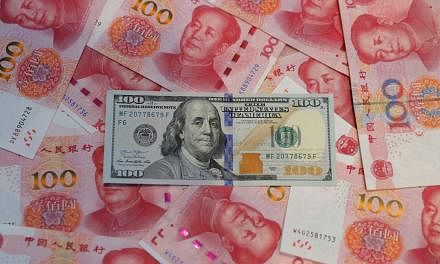WASHINGTON - China bought an additional 204,000 tonnes of American soya beans on Friday (Sept 13) - a day after Chinese buyers bought 600,000 tonnes of US soya beans for shipment from October to December.
In itself, the purchases are small - the US was, as of March, projected to produce over 100 million tonnes of soya beans in 2018-2019.
But it marks the biggest purchase of soya beans from China in over a year, or since around the time China retaliated against US tariffs by putting a 25 per cent tariff on US soya beans - effectively rendering them uncompetitive compared with producers in other places, principally South America.
The purchases came as reports from China on Friday indicated that Beijing would exempt soya beans and some other American agricultural products from tariffs.
It was not immediately clear whether that meant that the 25 per cent retaliatory tariff would be lifted, or whether additional tariffs would not be applied. The implication appeared to be, however, that the 25 per cent would stay.
"We haven't got confirmation yet on exactly what it means," Grant Kimberley, director of market development at the Iowa Soybean Association, told The Straits Times on Friday afternoon in the US.
"We'll probably learn more over the weekend and going into Monday."
"All I do know, is there have been several Chinese companies making inquiries about buying US soya beans," he said. "We've heard lots of chatter about that."
"And there has actually been confirmation that China has purchased 204,000 metric tonnes of US soya beans on Friday," he said.
"The US Department of Agriculture confirmed… that private exporters bought 204,000 tonnes of US soybeans destined for China."
"There's 600,000 tonnes purchased yesterday, and there must have been another 204,000 tonnes today," Mr Kimberley said over the phone from the association's office in Des Moines. Most likely they had been purchased on Wednesday and Thursday respectively, he said.
China's tariff on soya beans left American soya bean farmers staring at major losses, and dependent on bailout money from the federal government to keep creditors at bay and to stay afloat as the US-China trade war grinds on.
But gestures by both countries in recent days were cause for cautious optimism, said Mr Kimberley - himself from a family that farms around 1,600ha of corn and soya bean.
US President Donald Trump on Wednesday delayed implementation of a new round of tariffs on US$250 billion (S$340 billion) worth of Chinese goods, from Oct 1 to Oct 15, as a "gesture of good will" to China.
The president tweeted that the delay was "at the request of the Vice-Premier of China, Liu He, and due to the fact that the People's Republic of China will be celebrating their 70th Anniversary".
Oct 1 marks the 70th anniversary of the founding of the People's Republic of China, and will be marked by a major celebration, including a military parade in Beijing.
The US tariffs on all goods from China were set to increase from 25 per cent to 30 per cent.
On Thursday, Mr Trump also appeared to suggest that though he wanted a comprehensive deal, he was open to an "interim" deal on trade with China. Later, White House spokesman Judd Deere emphasised that the president would prefer a complete agreement.
Later, the president told reporters: "If we're going to do the deal, let's get it done."
"A lot of people are talking about it, I see a lot of analysts are saying an interim deal - meaning we'll do pieces of it, the easy ones first. But there's no easy or hard. There's a deal or there's not a deal."
"But it's something we would consider, I guess," he said.
There may be other factors at play in the soya bean purchases. Chinese buyers are unlikely to buy American soya beans if the tariffs make their price more expensive than others. But South American soya bean producers are nearing the end of their annual stock, which means their prices are edging up, and American soya beans are now more competitive.
"South America is at the end of their marketing window and they're just getting ready to start planting their crop," Mr Kimberley said. "China is not going to buy something if they don't need it or if it's not priced competitively. And China needs some more soya beans, they need some more pork."
The purchase could thus be a combination of both price and goodwill, he said.
"There's a lot of unknowns; we don't know exactly what's going on, but it's at least a good sign that both sides are negotiating again and maybe interjecting some goodwill into the process," he said.
The glimmer of a thaw comes after tit-for-tat rounds of tariffs in August. Trade talks are now set to resume at a high level in the US in early October.
